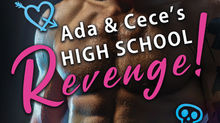An Interview with the exceptional Jessica Cale
- Eve Dangerfield

- Feb 24, 2016
- 3 min read

I adore Jessica Cale's books and am her biggest fan, or at least the most Australian (maybe) so I am thrilled to interview her for my blog as her stunning upcoming novel The Long Way Home is mere days from release, Feb 24, 2016. (To read my review of TLWH click here) Take it away Jess
How do you write from the perspective of a 17th century person?
I believe that people have always been more or less the same, allowing for differences in experience and perspective. Research helps, but in the end, I have to put myself in their shoes. How would I respond to what they’re going through, wearing their clothes, eating their food, seeing their surroundings. You can’t look at things like a 21st-century visitor (unless you’re writing time travel, of course), so you have to appreciate that they would have taken a lot of it for granted. They wouldn’t have noticed how dirty the floor was if they saw it every day. More than the history, I have the advantage that I lived in Britain for a long time and that helps me to describe things that might be overlooked from an American perspective. The rain is different, and it’s a different kind of cold. The days are longer in the summer and shorter in the winter than they are here, and distances are gauged differently when you’re walking. Banter is totally different. It’s easy to imagine that little has changed in four hundred years.
How much do you write from experience? Quite a lot, actually. Again, I draw on my experience of Britain for a lot of it, especially the color. While I’m happy to say I did not see the drama my heroines go through, bits of their stories are based on truth. Alice is a barmaid and I worked in bars for four years over there, including one 17th century coaching inn. Alice’s experience is not a million miles off of mine. Jane deals with filth and pests in Virtue’s Lady, and some of the places I lived were likewise pretty special. Their stories are pure fiction, but I fiction is better when there is truth in the details. Which one is your book boyfriend and why? All of them! I am a little bit in love with all of my heroes. Nick is probably the love of my life. Mark Virtue left quite an impression, and I just spent the better part of a year trying to figure Jack out. Right now I’m hooked on a boxer called Jake. He’s a-whole-nother interesting altogether. I really get into working on my heroes and trying to make them into three-dimensional people who are very different from each other. Mark was the most alive so far. I had a dream once where he was sitting on the end of my bed calmly telling me exactly how to write his story. I don’t remember a word he said, but I think he liked the way it turned out.
Can you gauge the influence that drumming has had on your prose? This question comes from my drum teacher, Huw! You’d be surprised. I do play the drums, and I was fortunate enough to take lessons for a few years in Swansea. (Huw is an awesome teacher, FYI!) I love drumming, but I don’t think I was naturally great at it. I started lessons older than most and it took me awhile to get down the basics, but I got there in the end. Drumming taught me that anything worth doing takes patience and practice to get it right, and this is especially true in writing. Tyburn took me ten years altogether, but I got there in the end!
What makes a hero in real life or fiction? I have very rigid requirements for my heroes. You might not think so, given how different they are, but they have certain things in common. We would call them feminist, although that wasn’t really a thing yet. They’re all very respectful of women, help the less fortunate, and whether or not they’re on the right side of the law, they have a well-developed personal moral code they stick to. They are socially conscious, loyal to a fault, and they have good senses of humour. The specifics might change, but the kindness won’t. These things are all very important in real life, too!
































Comments